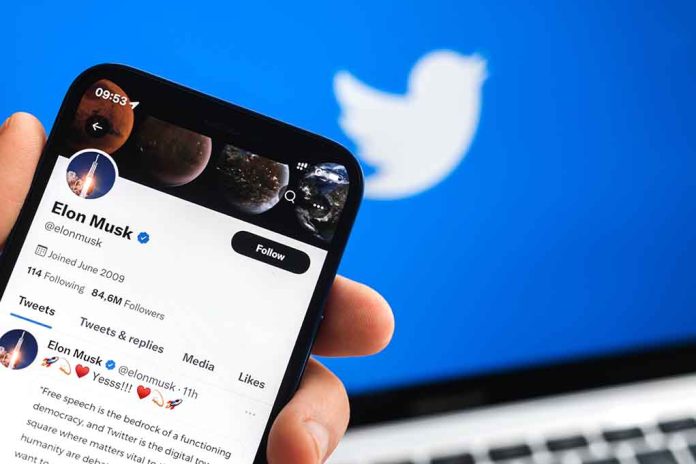
Elon Musk exits DOGE after 130 days, expressing disappointment with Trump’s “big, beautiful bill” that he believes contradicts their mission to reduce government spending by $175 billion.
Key Takeaways
- Elon Musk’s tenure as a special government employee has reached its 130-day limit, officially ending his leadership of the Department of Government Efficiency (DOGE).
- Despite DOGE claiming $175 billion in savings through layoffs, agency shutdowns, and contract cancellations, Musk criticized Trump’s “big, beautiful bill” for undermining these efforts.
- Musk will maintain a small White House office but plans to refocus on his businesses: Tesla, X, xAI, and SpaceX.
- Republican fiscal conservatives share Musk’s concerns about the bill’s impact on national debt, creating tension within Trump’s support base.
- Pension fund leaders are pressuring Tesla’s board to require Musk to commit at least 40 hours weekly to Tesla as part of future CEO compensation packages.
Musk’s Government Efficiency Mission Concludes
After serving the maximum allowed 130 days as a special government employee, Elon Musk is officially ending his leadership role at the Department of Government Efficiency (DOGE). The billionaire entrepreneur publicly thanked President Trump for the opportunity to tackle wasteful spending in the federal government. A White House official confirmed Musk’s departure and that he is currently going through the formal offboarding process. Despite stepping back from his official role, Musk indicated he will maintain a small office at the White House and continue limited government work until the end of Trump’s term.
The DOGE initiative, under Musk’s leadership, claimed to have identified approximately $175 billion in potential savings through various efficiency measures including layoffs, agency shutdowns, and contract cancellations. However, Musk’s departure comes amid growing tension with the administration over fiscal priorities, particularly regarding Trump’s signature spending legislation. This conflict has fueled speculation about a widening rift between the two powerful figures who once appeared closely aligned on government reform priorities.
Clash Over “Big, Beautiful Bill”
At the heart of Musk’s departure is his vocal opposition to President Trump’s legislative priority – a tax and spending package known as the “big, beautiful bill.” This legislation would increase spending on defense and border security while cutting funding for clean energy, Medicaid, and Medicare. Musk publicly criticized the bill, suggesting it fundamentally contradicts DOGE’s mission to reduce federal government bloat and wasteful spending. The bill has already passed in the House and now faces deliberation in the Senate, where several fiscal conservatives have joined Musk in expressing concerns.
“I think a bill can be big or it can be beautiful. But I don’t know if it can be both,” Said Elon Musk, DOGE Chairman
President Trump acknowledged mixed feelings about the legislation while emphasizing its importance to his legislative agenda. “I’m not happy about certain aspects of it, but I’m thrilled by other aspects of it,” Trump stated regarding the bill. Meanwhile, Republican House Speaker Mike Johnson praised DOGE’s work and expressed eagerness to implement its findings, seemingly attempting to bridge the growing divide between the administration’s spending priorities and DOGE’s efficiency mandate. This tension highlights the challenges of balancing fiscal conservatism with policy priorities within the administration.
Return to Private Sector Innovation
With his government service concluding, Musk indicated he will refocus his attention on his business empire, including Tesla, X (formerly Twitter), xAI, and SpaceX. This shift comes as Tesla investors grow increasingly concerned about Musk’s divided attention. Pension fund leaders have urged Tesla’s board to require Musk to work a minimum of 40 hours per week at the electric vehicle company as a condition for future CEO compensation packages. The upcoming rollout of critical technologies across his companies demands more of Musk’s time and strategic oversight.
“As my scheduled time as a Special Government Employee comes to an end, I would like to thank President @realDonaldTrump for the opportunity to reduce wasteful spending. The @DOGE mission will only strengthen over time as it becomes a way of life throughout the government,” Stated President Trump
Despite his criticism of specific policy decisions, Musk expressed optimism that the efficiency-focused philosophy of DOGE will continue influencing government operations long after his departure. Legal challenges are also emerging for Musk, with allegations of federal law violations during his time leading DOGE. These potential complications add another dimension to his transition back to full-time private sector leadership. With reduced political spending after contributing over $250 million to Trump’s 2024 campaign, Musk appears to be strategically recalibrating his relationship with the administration.



